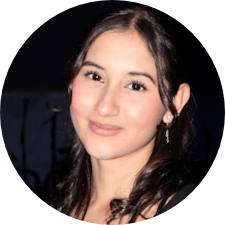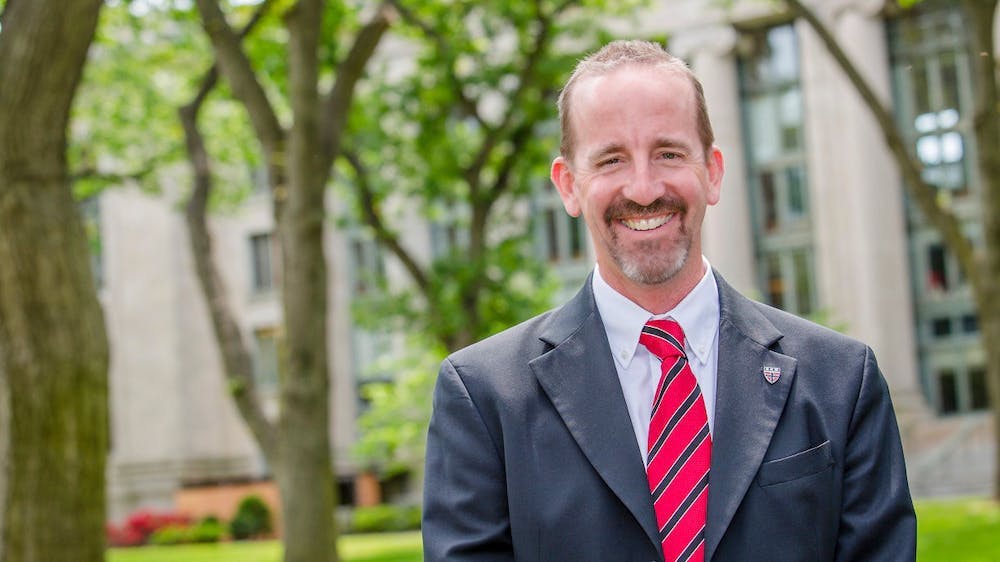Francis J. Doyle III is a sailor, a passionate soccer referee and a father of three. He’s also partially responsible for the development of the artificial pancreas — and has steered Harvard’s School of Engineering and Applied Sciences for over seven years.
In July, he’ll become Brown’s 14th provost.
In entering this new chapter, Doyle told The Herald he hopes to bring the leadership and bridge-building skills that have defined his career thus far to College Hill — while advancing Brown’s research innovation with a focus on inclusion and excellence.
Engineering excellence
Doyle’s father — a first-generation college student and chemical engineer — quickly became a model for his future as an academic and scholar, he said. Alongside his siblings, Doyle’s parents instilled the importance of a college education within their children, prompting each of them to pursue an undergraduate degree at their chosen institutions.
After graduating high school in Delaware, Doyle went on to study chemical engineering and receive curricular training at three private institutions — Princeton, Cambridge University and the California Institute of Technology — each of which shaped his educational journey, he said. Throughout the first phase of his early career, Doyle worked at three public colleges, teaching at Purdue University, the University of Delaware and the University of California at Santa Barbara.
“It struck me that I had this amazing and wonderfully unique experience of having both lived in the private university world as a student and trainee, and then having worked as a faculty member for so many years in public universities,” Doyle said. “It gave me, I think, a very balanced perspective on universities.”
During his time as an academic and research administrator at UCSB, Doyle began his work on the artificial pancreas, a device for individuals with type 1 diabetes to help them normalize their blood sugar levels. For approximately 30 years, Doyle’s work earned public recognition, exposing him for the very first time to the connections between different fields.
“My work, by its nature, is very interdisciplinary,” Doyle said. “We can’t do it alone as (chemical) engineers.”
Over the years, Doyle has collaborated closely with electrical, computer, mechanical and biomedical engineers to advance his findings, in addition to working with medical doctors. Doyle recalled his first meeting with a medical doctor as a “proverbial research marriage made in heaven.”
“She said, ‘You’ve got the algorithms my patients need,’ and I said to her, ‘You’ve got the patients I’d love to bring our technology to help.’ ”
In 2015, Doyle earned the American Automatic Control Council Control Engineering Practice Award. That same year, he was appointed Dean of Harvard’s John A. Paulson School of Engineering and Applied Sciences, where he looked to facilitate the school’s research and academic expansion.
Doyle’s tenure marked a self-described “growth phase” for the engineering school: Student enrollment increased, and the school added new entrepreneurial programs as well as multiple collaborative joint degree programs with Harvard’s Graduate School of Design, its business school and its undergraduate college.
Lawrence Bacow — Harvard’s outgoing president — dubbed Doyle the “connective tissue within Harvard,” praising his continued efforts to connect different pieces of the college, according to a Harvard press release.
The School of Engineering holds a reputation as the “bridge-builders of Harvard,” Doyle said.
In 2021, he was elected to the National Academy of Engineering, one of the field’s most prestigious distinctions.
Entering the ‘next administrative chapter’
Doyle was “on cloud nine” in his position at Harvard, he said — and then he got a phone call.
President Christina Paxson P’19 called Doyle in October, telling him that his “name had come up” in the search for a new provost, asking Doyle to discuss the position.
At the time, Doyle told Paxson and the search committee he was “not looking.”
“I had, I might argue, one of the greatest engineering dean gigs on the planet,” he noted.
Doyle was initially unaware of the departure of former Provost Richard Locke P’18 and had no prior relationship with Locke before hearing about the position. A career shift was not part of his plan, but Doyle was quickly interested in the offer.
“The reason (the position) intrigued me was that initial conversation with President Paxson,” Doyle said. “Her leadership style — it came through in that call. She was really engaging and inspiring, and the more I learned about Brown and took a deeper dive, the more intrigued I became.”
In the following weeks, Doyle dedicated his time to “deep soul-searching,” as he grappled with the possibility of leaving his position at Harvard. Ultimately, he decided to pursue the job, hoping to make an impact on a campus-wide scale.
“Brown was the absolute optimal place for my next administrative chapter,” he said.
Going into “learning mode”
On Dec. 15th, Brown University announced that Doyle had been appointed as the school’s 14th provost. Since then, Doyle has been in “learning mode,” including a conversation with Locke where he learned about the role.
Working with provosts in his previous positions has also given Doyle “a peek into the role,” he said.
Interim provost Larry Larson emphasized Doyle’s “ethical and moral sense” along with his valuable past experiences and grasp of university financials — qualifications that the search committee deemed essential in the next elected candidate.
“I think he’s wrestled deeply with all of the issues that we encounter here on the campus … such as diversity, research growth, the importance of teaching,” Larson said. “He’s just this spontaneously eloquent person … and I just think he’s an incredibly great choice for Brown.”
At Harvard, Doyle worked to implement the engineering school’s diversity plan and considers diversity and equity a key pillar of his work. At Brown, he hopes to continue that work while also furthering the school’s aspirations for research growth.
Doyle noted that he is excited to begin his position this summer. Next fall, he hopes to integrate himself fully into the Brown community — beginning, he said, with taking his chocolate lab out for a walk on the Main Green.

Natalie Villacres is a senior staff writer covering the University Hall beat. She is a junior from Queens, New York City, majoring in education and psychology.





